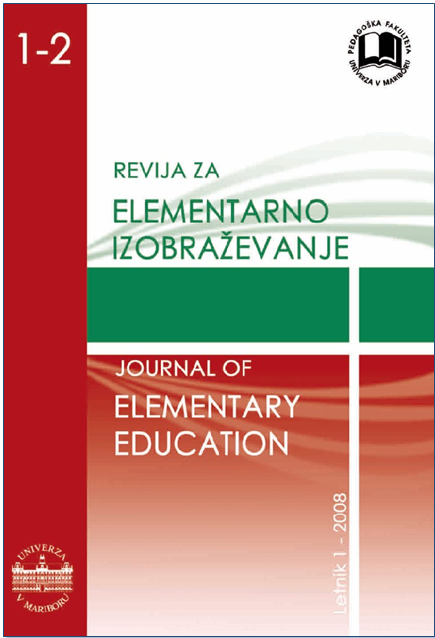Matematična anksioznost
Keywords:
mathematics anxiety, math avoidance, gender differences, age differences, elementary school teachers, intervention programsAbstract
Mathematics Anxiety. Mathematics anxiety is commonly defined as a feeling of tension, apprehension or fear that interferes with a students' performance in math classes. Although the causes of math anxiety are undetermined, some teaching styles have been identified as risk factors. Mathematics anxiety can cause personal and educational problems. This can lead to the common tendency of avoiding mathematics, which may ultimately hinder math competence and make important career paths unobtainable. It is imperative that teachers understand the causes of their students’math anxiety and offer them proper help. This article defines the current problem and provides a review of selected literature on the causes and consequences of mathematics anxiety and assessment and intervention programs. Some findings about math anxiety and gender and age differences are given.Mathematics anxiety is also a common phenomenon among elementary school teachers and can seriously interfere with their teaching. For this reason, the article also presents a viewpoint of this particular problem.
Downloads
References
Amato, S. A. (2004). Improving student teachers's attitudes to mathematics. The 28th International Conference of the International Group for the Psychology of Mathematics Education, 2, 25–32.
Ashcraft, M. H. (2002). Math Anxiety: Personal, educational and Cognitive Consequences. Current Directions in Psychological Science, 11 (5), 181–185.
Ashcraft, M. H. in Kirk, E. P. (2001). The relationship among working memory, math anxiety and performance. Journal of Experimental Psychology, 130 (2), 224–237.
Austin, S., Wadlington, E. in Bitner, J. (2001). Effect of beliefs about mathematics on math anxiety and math self-concept in elementary teachers. Education, 112 (3), 390–397.
Baisse, W. H. (1993). Math Anxiety Workshop, 1993: A programe developed for the math anxious student at all levels, but predominantly at developmental levels. Pridobljeno 3. 4. 2008, z EBSCO HOST Research Databases.
Baloglu, M. in Kocak, R. (2006). A multivariate investigation of the differences in mathematics anxiety. Personalitiy and Individual Differences, 40, 1325–1335.
Barnes, A. in McCoy, L. P. (2006). Investigating the causes of math anxiety in the high school classroom. V L. P. McCoy, (ur.), Studies in teaching 2006 Research Digest: Research projects presented at annual research forum (13–18). Winston-Salem, NC: Wake Forest University.
Carr, A. (1999). The Handbook of Child and Adolescent Clinical Psychology: a Contextual approach. London, New York: Routledge.
Cates, G. L. in Rhymer, K. N. (2003). Examining the relationship between mathematics anxiety and mathematics performance: an instructional hierarchy perspective. Journal of Behavioral Education, 12 (1), 23–34.
Chiu, L. H. in Henry, L. L. (1990). Development and validation of the mathematics anxiety scale for children. Measurement and Evaluation in Counseling and Development, 23 (3). Pridobljeno 1. 3. 2008, z Academic Search Premier.
De Bronac Meade in Brown, R. (1982). Reduction of mathematics anxiety: A cognitive behavior modification approach. Pridobljeno 3. 4. 2008, z EBSCO HOST Research Databases.
Gierl, M. J. in Bisanz, J. (1995). Anxieties and attitudes related to mathematics in grades 3 and 6. Journal of Experimental Education, 63 (2). Pridobljeno 2. 3. 2008, z Academic Search Premier.
Gresham, (2007). A study of the mathematics anxiety in pre-service teachers. Early childhood Education Journal, 35 (2), 181–188.
Gutbezahl, J. (1995). How negative expectancies and attitudes undermine females' math confidence and performance: A review of the literature. Pridobljeno 3. 4. 2008, z EBSCO HOST Research Databases.
Hannula, M. S., Liljedahl, P., Kaasila. R. in Röser, B. (2007). Researching relief of mathematics anxiety among pre-service elementary school teachers. Proceedings of the 31st Conference of the International Group for the Psychology of Mathematics Education, 1, 153–157.
Downloads
Published
Issue
Section
License
Copyright (c) 2008 The Journal of Elementary Education

This work is licensed under a Creative Commons Attribution-NonCommercial-NoDerivatives 4.0 International License.
